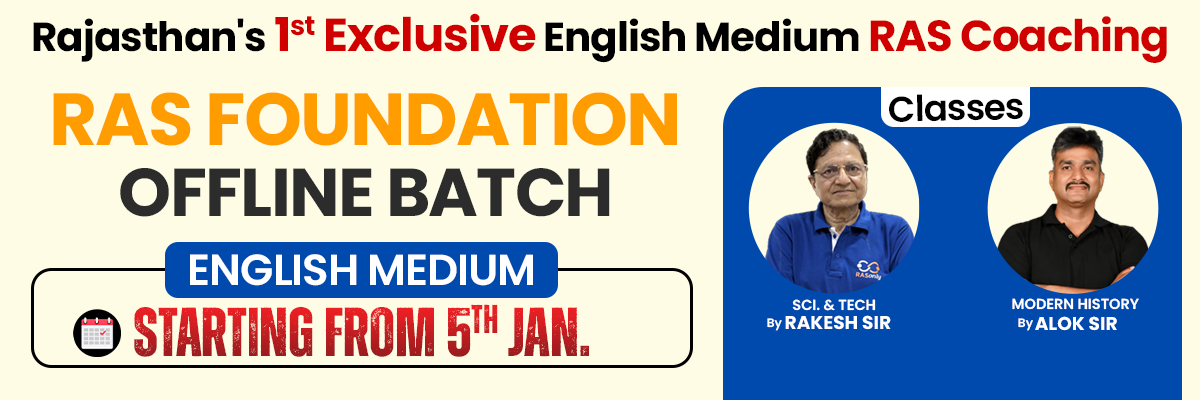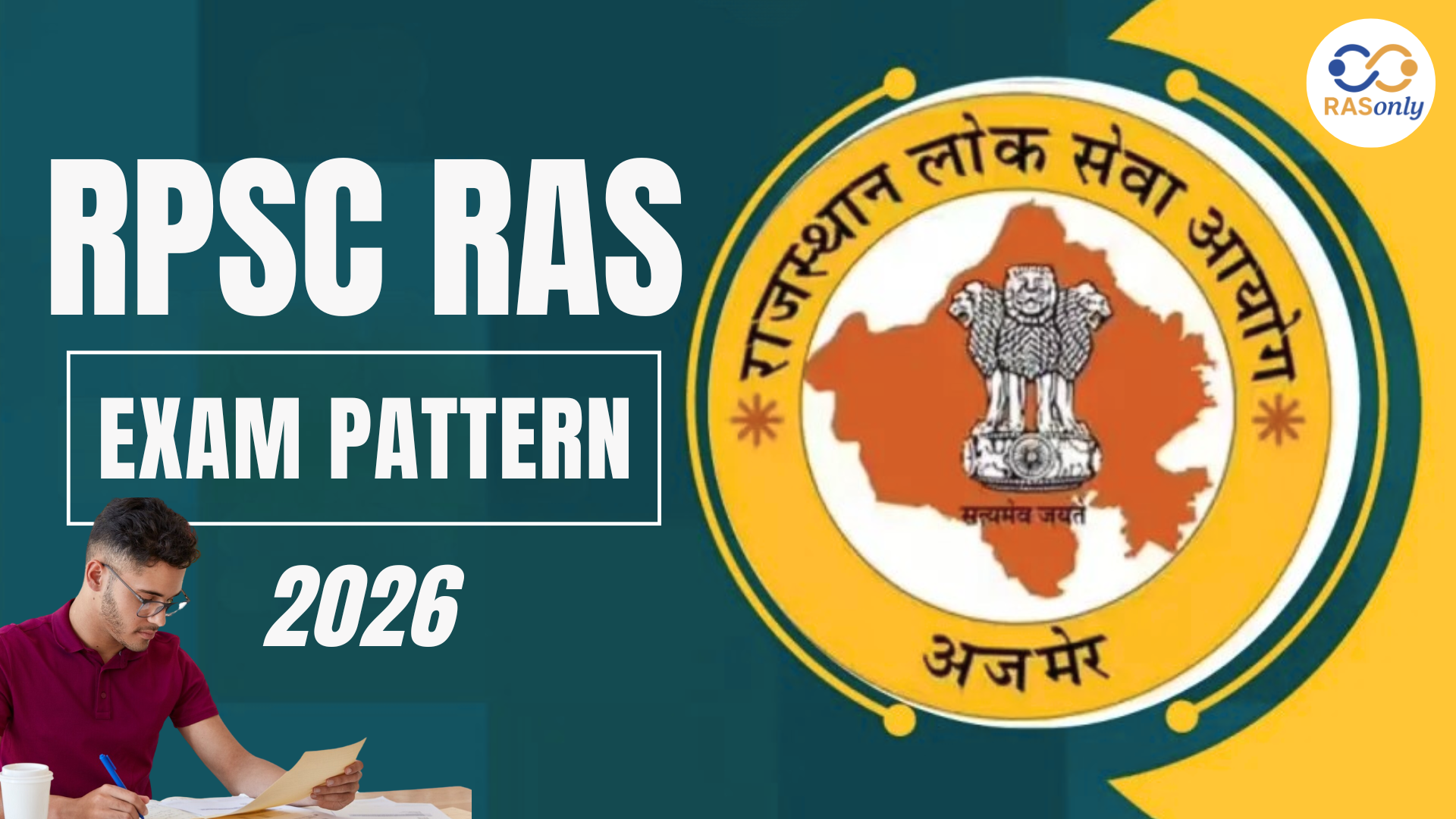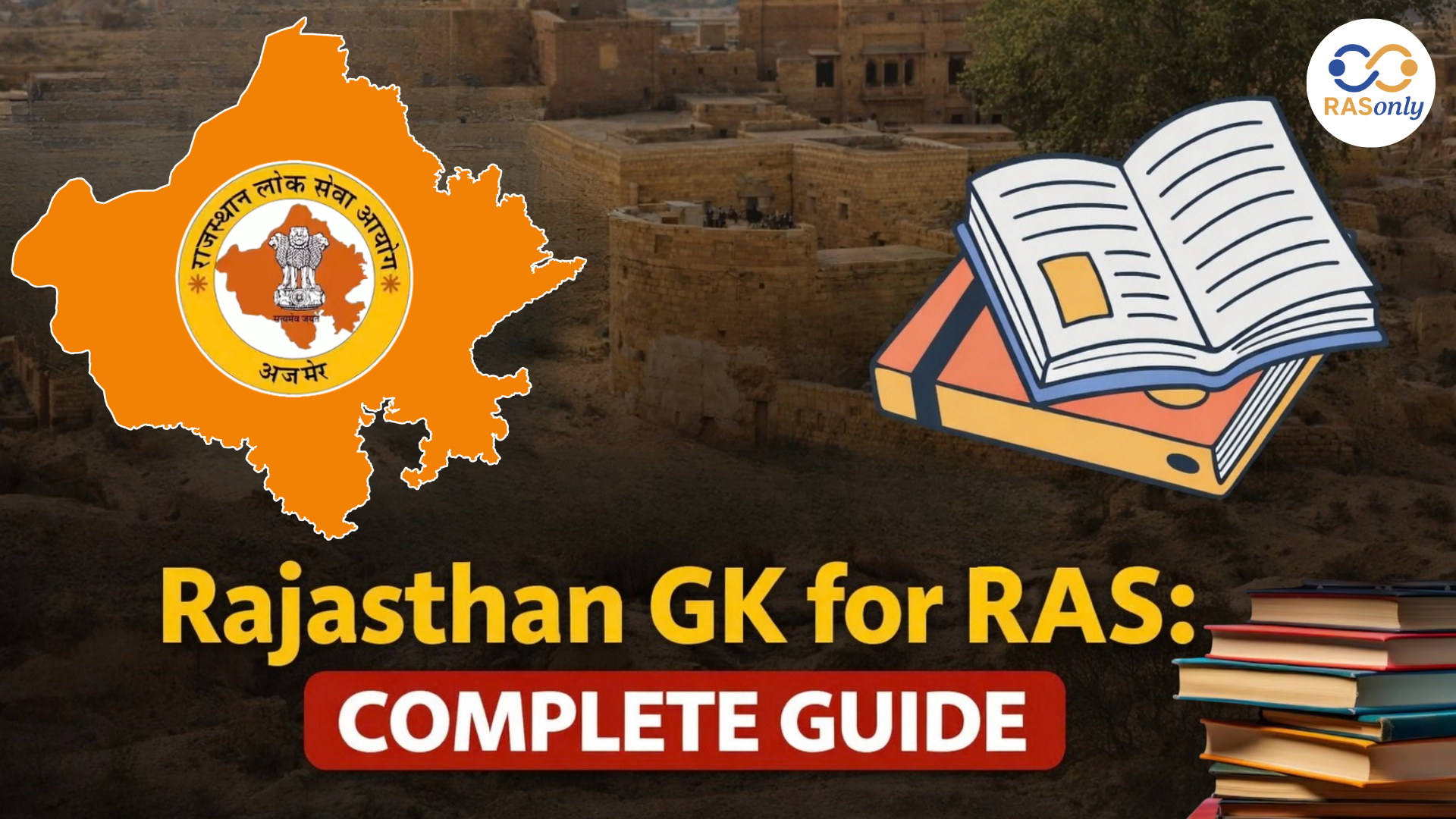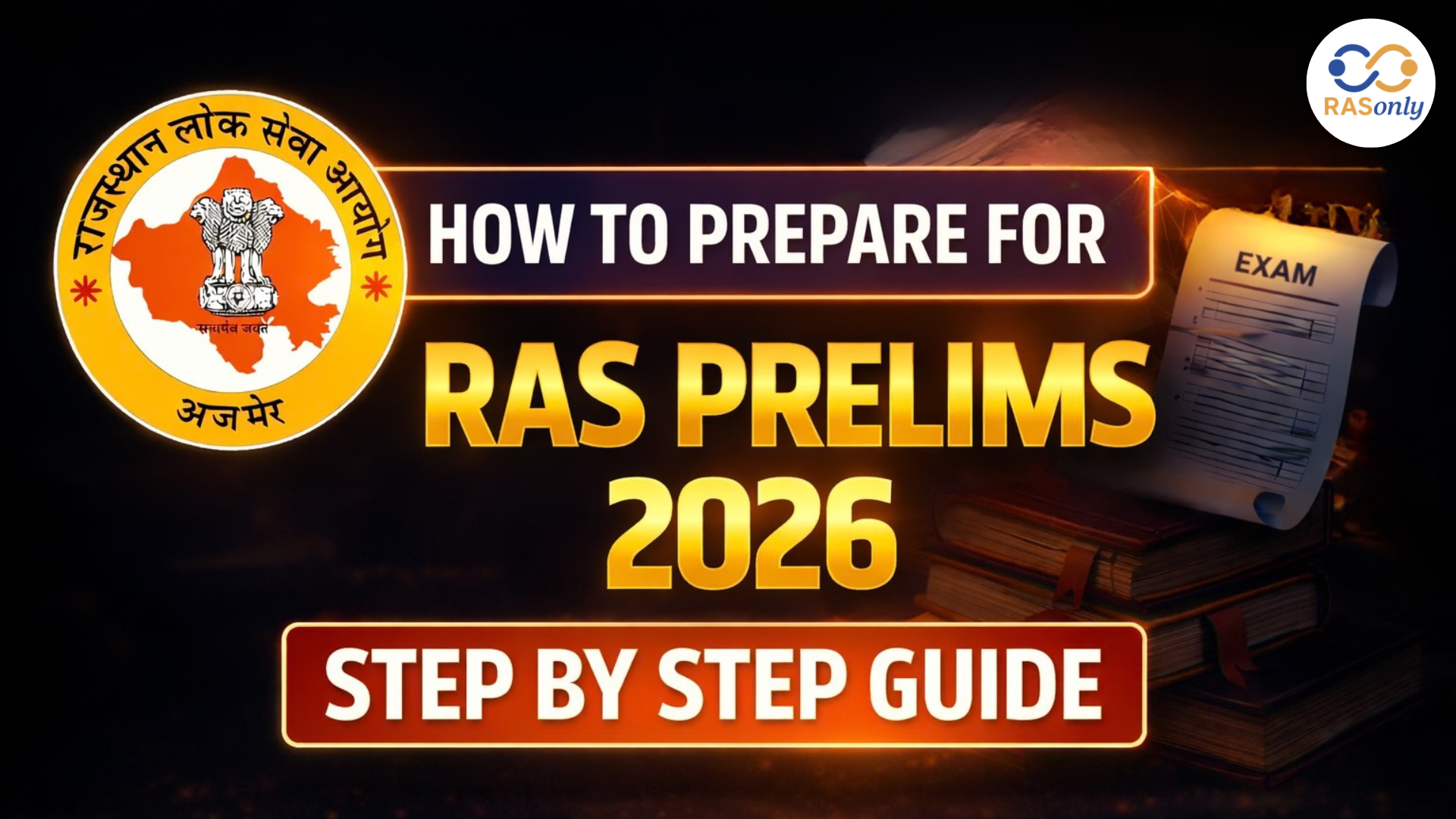RPSC RAS 2026 Subject Wise Exam Pattern for Prelims, Mains & Interview Details
- >
- RAS Preparation Resources
- >
- Fundamental Duties
Fundamental Duties

Get in Touch with RASonly!


Fundamental Duties are contained in Part IV-A in the Indian constitution added by the 42 nd Amendment Act in 1976 on the recommendation of Swaran Singh Committee. Such obligations were stated under the example of the Constitution of Russia, which provides the same. Originally there were 10 textual duties but with the 86 th Constitutional Amendment Act, 2002, an 11 the duty was added which concerned the education of children aged 6-14 years, bringing the total number of duties to 11. These functions can be read in Article 51-A that comprises the single article in Part IV-A of the Constitution. Although these obligations are not legally binding (non-justiciable), they would also encourage civic attitude amongst citizens and raise their national pride.
Important aspects of the Fundamental Duties for RAS Mains:
- Fundamental duties are moral obligations and reminders that together with rights, the citizens also carry the responsibility of the nation.
- Purely Non-Justiciable: As compared, to Fundamental Rights, which are made justiciable by the provision of law, Fundamental Duties are not justiciable at all. Yet they serve as a reminder of the obligations of the citizens.
- The Government intends to appoint different ministries the task of creating awareness about these obligations, to motivate responsible citizenship.
List of Fundamental Duties (Article 51-A):
- Honor the Constitution, the National Flag and the National Anthem
- Duty: To uphold the Constitution and cherish its principles, the institutions, the national flag and the national anthem.
- Purpose: To foster respect to democratic ideals, symbols of sovereignty and unity of India.
- Adore and Observe National Ideals of the struggle of Freedom
- Duty: To honour and adhere to the worthy principles that were the guiding spark of the national liberation movement.
- Purpose: This serves to remind the citizens of what the freedom fighters gave and why people still have to uphold the ideals of liberty, equality and fraternity.
- Tribute to India Acknowledge the Sovereignty of India, the unity and integrity of India
- Duty: To preserve, protect, and defend the sovereignty, unity, and integrity of India.
- Purpose: solidifies the duty of citizens who are required to preserve the national integrity of India and ensure that there are no threats to its sovereignty.
- Security the Nation and the Safeguarding of National Interests
- To protect the nation and national service when required to do so.
- Purpose: Imports citizens to the idea of contributing to the national defense and service in case of emergency.
- Foster Peace and Fraternity, Denounce Discriminatory acts
- Duty: To enhance peace and the spirit of universal brotherhood of all people regardless of religion, language and region and denounce practices that degrade the dignity of women.
- Purpose: Cultivates social harmony, social integration and equality to all regardless of caste, creed, gender or religion.
- Save the Rich Heritage and Cultural Diversity of India
- Duty: To respect and uphold the rich heritage of the composite culture of the country
- Purpose: fosters a sense of pride in the diverse and composite culture of India and led to its sustenance to the future generations.
- Save and Enhance the Natural Environment
- Duty: To preserve and better the natural environment, including forests, lakes, rivers and living creatures, and to have compassion to living beings.
- Purpose: This promotes environmental protection, sustainability and respect of all life forms, which is essential towards building sustainable development.
- Build Scientific Temper and Spirit of Inquiry
- To instill scientific temper, humanism and the spirit of inquiry and reform.
- Purpose: Promotes rationalization, scientific investigation and a morale to transform society in the betterment of the society.
- Protect the State Property and Reject Violence
- To guard the domain of people and renounce bloodshed.
- Purpose: This avoids people littering the streets and promotes non-violence ways of settling differences.
- Strive for Excellence in All Spheres
- Duty: To work to the best of their ability in all walks of individual and social pursuit in the effort to make the nation attain new heights of effort and accomplishment.
- Purpose: facilitates the personal advancement, the development of the country and pursuit of excellence in every endeavour.
- Provide Education for Children Aged 6-14 Years
- Duty: To ensure access to education to their child or ward aged between six and fourteen years (which has been added in 86 th Constitutional Amendment Act, 2002).
- Purpose: To assure that children have education access, which is key to their individual development and the national development in the future.
Significance of Fundamental Duties:
- Civic Responsibility: These duties motivate citizens to perform their obligation to the country and society not only to the rights of the citizens.
- National Integration: They encourage social cohesion and communion, cross-Regional, religious, and linguistic boundaries and support fraternity and solidarity.
- Environmental and Cultural Preservation: The protection of natural resources and cultural heritage brings benefits to the nation in terms of ensuring heritage to be passed on to the following generations.
- Inducement of Rational Thinking: The tempering of reason and humanism in the society enhances rationality, inquiry and innovation.
- Sustainable Development: The safeguarding of the environment and other property in the hands of the community helps in the sustainable development and social peace in the community.
Challenges of fundamental duties
- Non-Justiciable Nature: These duties can be valuable in dictating the behavior of citizens but since it cannot be enforced, there is no legal remedy to the non performance of these duties.
- Incognizance: A negligence with regards to these responsibilities still exists with the general population specifically in the countryside.
- State vs Central Responsibility; As much as these duties are a necessary element in the Constitution, it is imperative that they demand the efforts of the state and the central governments in order to create awareness and thus implement them.
Conclusion for RPSC RAS
Fundamental Duties is a very important feature of the Indian Constitution, which further ensures a mutual balance of rights and responsibilities. They serve as a reminder to their citizens of their responsibilities to the nation, society and fellow citizens. Although they are non-justiciable duties, they play very essential roles in creating responsible citizens, harmony in society, national integration and sustainability of the environment.
Also read: FUNDAMENTAL DUTIES
Also read: Sachar Committee
Post Category
- RAS Salary
- Result
- RAS Admit Card
- RAS Job
- RAS Cutoff
- Preparation Tips
- RAS Answer Key
- RAS Exam Analysis
- RAS Syllabus
- RAS Previous Year Papers
- RPSC RAS Exam Pattern
- RAS Interview
- RAS Mains Exam Date
- RAS Vacancy
- RAS Test Series
- RAS Best Books
- RAS Preparation Resources
- RAS Coaching Centre
- History
- Polity
- Geography
- Economics
- Science
- Art and Culture
- RPSC RAS Application Form
- RPSC RAS Notification
RASonly Interview Guidance Program

Mr. Ashok Jain
Ex-Chief Secretary Govt of Rajasthan
- IAS officer of the 1981 batch, Rajasthan cadre.
- Passionate about mentoring the next generation of RAS officers with real-world insights.
- Got retired in Dec 2017 from the post of Chief Secretary of the state of Rajasthan.

Mr. Guru Charan Rai
Ex-ASP / SP in Jaisalmer
- Guru Charan Rai, IPS (Retd), retired as Inspector General of Police (Security), Rajasthan, Jaipur in 2017.
- Served as ASP and SP in Jaisalmer, Nagaur, Sri Ganganagar, Sawai Madhopur, Dausa, Sikar, and Karauli.
- He also held key positions as DIGP and IGP in the Law and Order division.

Mr. Rakesh Verma
Ex-IAS Officer, B.Tech, MBA, and M.A. (Economics)
- IAS officer of the 1981 batch and retired in Chief Secretary Rank.
- Civil servant of high repute and vast experience.
- Has been teaching UPSC CSE subjects for the last six years.
Related Post
Daily Current Affairs for RAS Exam Preparation 2026

Rajasthan Pavilion Shines at Stone Mart Jaipur 2026
February 07, 2026
Rajasthan Achieves 3,000 MW Under PM-KUSUM Scheme
February 07, 2026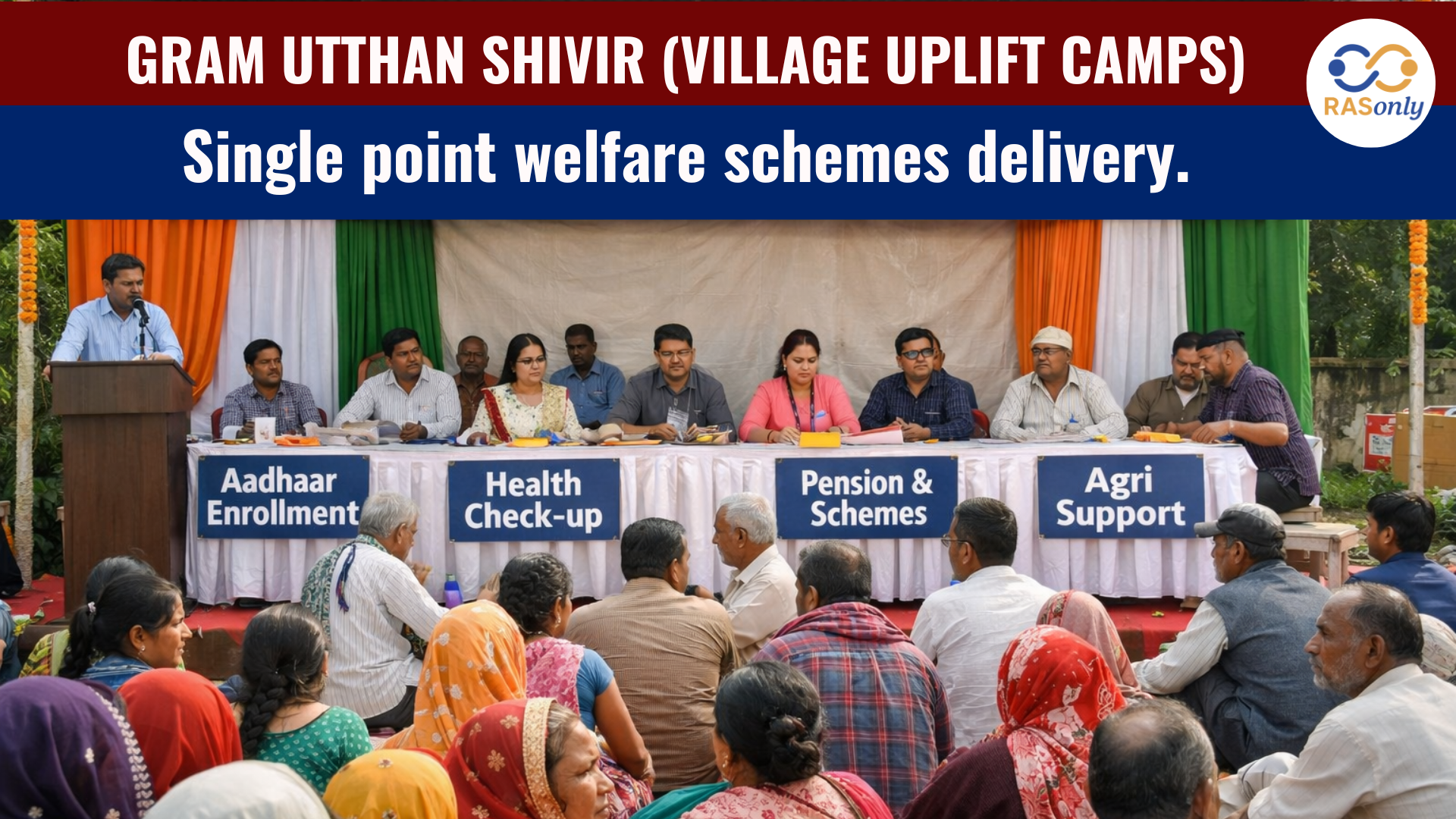
Gram Utthan Shivirs Strengthen Rural Governance in Rajasthan
February 07, 2026
Jaipur Badminton: 72-Minute U-15 Final Creates Record
February 06, 2026👉🏻 Register Today to Join Classes! 👍🏻
- Team RASOnly -
🎯 Benefits of RASOnly Coaching:
- ✅ 1:1 Mentorship with RAS Officers
- ✅ Experienced and Expert Faculty
- ✅ Free Library Access
- ✅ Daily Minimum 4 Hours Must
- ✅ Comprehensive Study Material
- ✅ Regular Tests & Performance Analysis
- ✅ Personalized Guidance & Doubt Solving
- ✅ Online & Offline Class Options
- ✅ Affordable Fees with Quality Education
Key Highlights:
- 👉🏻 3-Day Refund Policy
- 👉🏻 New Batch Starting from 04 August
- 👉🏻 Registration Amount: Only ₹1000




